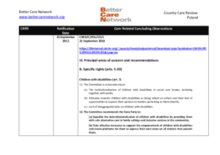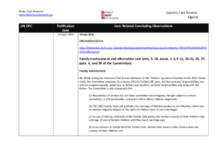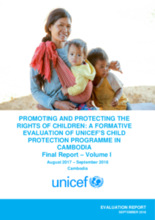Displaying 621 - 630 of 1510
This country care review includes the care related Concluding Observations adopted by the Committee on the Rights of the Child and the Committee on the Rights of Persons with Disabilities.
This country care review includes the care-related Concluding Observations adopted by the Committee on the Rights of the Child and the Committee on the Rights of Persons with Disabilities.
This article focuses on the concept of “family” and family membership from the perspective of care leavers in Zimbabwe.
This study reviews a series of interrelated studies on the development of children residing in institutions (i.e., orphanages) in the Russian Federation or placed with families in the USA and the Russian Federation.
This study from the Institutionalised Children: Explorations and Beyond Special Issue on Aftercare describes the mental health outcomes and transition experiences of a group of young adults who are currently transitioning (aftercare) or have already transitioned (alumni) out of a residential care organisation for orphaned and separated children (OSC) in New Delhi, India.
This article from the Institutionalised Children Explorations and Beyond Special Issue on Aftercare explores the outcomes for young people who have transitioned out of alternative care and into independent living in Sri Lanka and the need for policy changes to better meet their needs.
This study from the Institutionalised Children: Explorations and Beyond Special Issue on Aftercare is aimed at studying the concept of aftercare from the prism of human rights and the international framework in context of the Convention on the Rights of the Child and the UN resolution, Guidelines for the Alternative Care of Children. Furthermore, the research is aimed at analysing the legal provisions and standards provided within the Indian legal system and how far it is attuned to the international standards.
This film from Lumos is about the people who know that there is an alternative to institutional care, and who are working hard to make it happen.
This study from the Institutionalised Children: Explorations and Beyond Special Issue on Aftercare was conducted on 47 young adults who had grown up in various government and non-government child care institutions of New Delhi, India and the aftercare services they did or did not receive. The analysis revealed that the existing aftercare programmes are ill-equipped to prepare Out-of-Home Care (OHC) youth to transition from alternative care to independent living.
The objective of this evaluation was to provide evidence that can help strengthen performance and accountability with UNICEF’s work with the Royal Government of Cambodia and the myriad other authorities and organizations involved in child protection.



